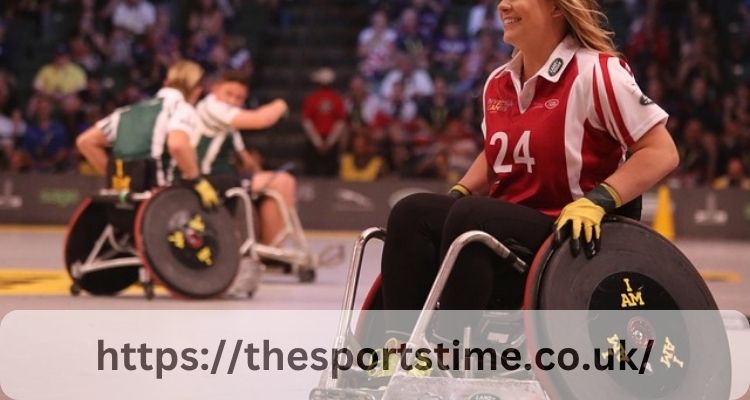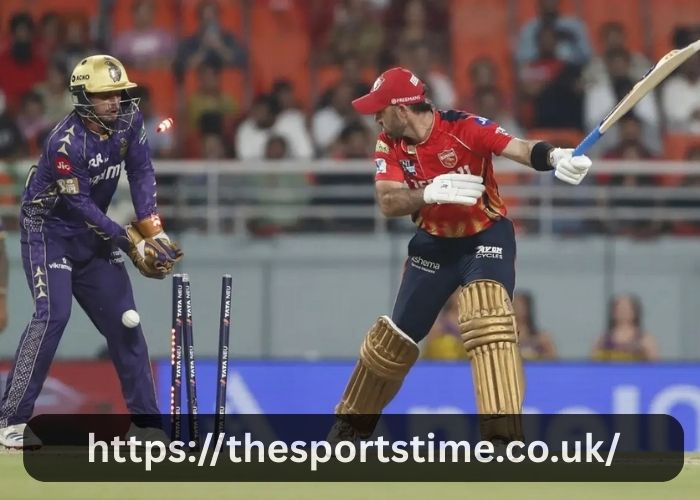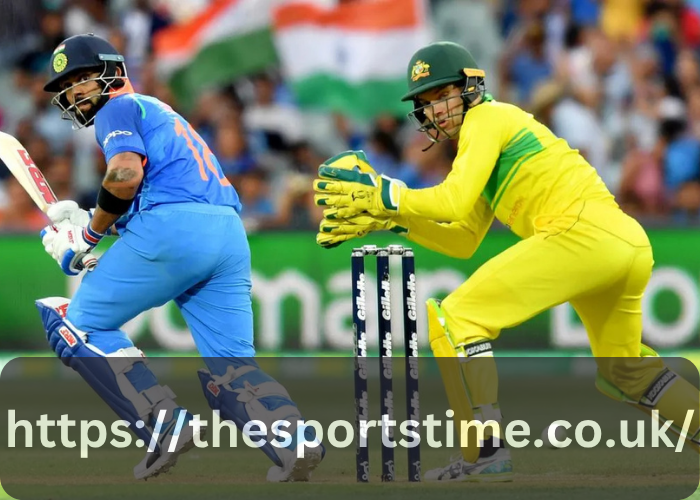Wheelchair Tennis Paralympics 2024

Wheelchair tennis is an Olympic sport which features athletes with different physical impairments and gender identities. The format of Wheelchair tennis resembles that of Olympic tennis with several key distinctions.
Norfolk and Wagner battled it out over ten deuce points before Dutch duo eventually prevailed in the semifinals. Meanwhile, Esther Vergeer overcame Sharon Walraven to capture her third successive gold.
In this article, we will discuss the main points or high lights of Wheelchair Tennis Paralympics 2024.
| Date | Event | Match | Score | Gold | Silver | Bronze |
|---|---|---|---|---|---|---|
| 7 Sep 2024 | Men’s Singles | Final | 6–2, 4–6, 7–5 | Tokito Oda (JPN) | Alfie Hewett (GBR) | Gustavo Fernández (ARG) |
| 6 Sep 2024 | Men’s Doubles | Gold-medal match | 6–2, 6–1 | Alfie Hewett & Gordon Reid (GBR) | Takuya Miki & Tokito Oda (JPN) | (Bronze match unknown) |
| 6 Sep 2024 | Women’s Singles | Final | – | Yui Kamiji (JPN) | Diede de Groot (NED) | Aniek van Koot (NED) (Wikipedia) |
| 5 Sep 2024 | Women’s Doubles | Final | – | Yui Kamiji & Manami Tanaka (JPN) | Diede de Groot & Aniek van Koot (NED) | Guo Luoyao & Wang Ziying (CHN) (Wikipedia) |
| 5 Sep 2024 | Quad Singles | Final | – | Niels Vink (NED) | Sam Schröder (NED) | Guy Sasson (ISR) (Wikipedia) |
Peter Norfolk
After suffering injury in a motorcycle accident at 24 years old, Peter Norfolk decided to try wheelchair tennis as a form of therapy and rehabilitation. Soon thereafter he won gold at his first quad singles Paralympic event and bronze in doubles events at Athens 2004 and Beijing 2008.
Wheelchair tennis made its first debut at the Paralympic Games as an exhibition sport in 1988, becoming an official medal-awarding event three years later in 1992. Since then, tournaments for wheelchair tennis have taken place every Summer Paralympics since.
Peter Norfolk of Great Britain had little trouble defeating American Kevin Whalen 61 62 during the opening round matches on Centre Court. Now, he will meet Australia’s Andrew Lapthorne – winner of three consecutive men’s quad singles championships – in the men’s quad singles final.
Monique de Beer from Netherlands and Sarah Hunter from Canada have won their opening two rounds, setting themselves up to play against each other in the semifinals.
Men’s quad doubles saw some surprising outcomes. Kramer and Weinberg, previously unrepresented in any medal competitions at all, defeated second seeds Norfolk and Jamie Burdekin 63 57 61, marking the inaugural match to take place under lights at Ariake Tennis Park’s grass courts.
In another semifinal, top seeds David Wagner of Germany and Nick Taylor from the US prevailed after an intense three-set battle that included 10 deuce points just in the opening set alone.
There was much tension during the final, with both players performing exceptionally. Snow took the first set 6-2 and seemed in control at the start of the second; however, Schrameyer battled back and eventually forced a deciding set with long rallies between both competitors exhibiting remarkable mental strength. Snow won 67 64 63 to claim his first Paralympic gold medal after watching his brother compete at the Olympics.
Robin Ammerlaan
Wheelchairs are used by athletes with physical impairments to move around more freely. Comprised of two elastic hemispheres connected by cushioned mats and synthetic threads, wheelchairs allow athletes who have limited use of one or more limbs to access mobility solutions – and are available both male and female users.
Wheelchair tennis, introduced into the Paralympic programme in 1992, provides people with disabilities an outlet for recreational competition. Athletes compete in men’s, women’s and quad singles events; singles doubles and mixed events may also take place depending on an athlete’s level of impairment; all athletes competing are assessed by trained Classifiers to evaluate them properly.
The Netherlands earned three gold, two silver and two bronze medals – their best haul since Paralympic competition began. Esther Vergeer and Maaike Smit’s women’s duo won gold medals in both quad events; becoming the first team ever to do so at any competition ever.
Vergeer defeated second seeded compatriot Korie Homan 62 46 76(5) to advance to the final, where she faced five-time Grand Slam champion Chantal Vandierendonck of Belgium. Vandierendonck won the first set but couldn’t keep pace in the second, falling by 63 75.
Vergeer produced an impressive finish to secure victory, with her cross court forehand down the line bringing up match point which she secured and eventually completed 60 64 for an emphatic victory.
Hall advanced to the semifinals of the men’s event by defeating Satoshi Saida 74 16 64 and meeting Ammerlaan who, on a roll from Atlanta and Sydney silver medallist Stephen Welch’s loss 62 64.
Welch put up an admirable fight, but ultimately fell to Ammerlaan 61 61 in an impressive and exciting match. Maaike Smit and Maaike van der Velde from Holland managed to take home bronze with an exciting win against Olson & Homan (63-76-63-63) for women’s bronze.
Michael Jeremiasz
Paris native Jeremiasz is an active member of the 2024 wheelchair tennis paralympics athlete commission and has played an instrumental role in shaping them. Through his charity work – helping set up “Comme Les Autres,” which offers disabled people opportunities to experience new activities and sports to build confidence and rediscover their place in society – he has also become a role model for disabled individuals.
Jeremiasz has shown great resilience through the pandemic by maintaining his training schedule and preparing for his tournament in style. He is an outstanding example of mental toughness and attributes his success to having a solid support network: “Without someone there to push through difficult moments alone is much harder,” he noted.
Men’s play in the event was marked by multiple upsets: Australian 12th seed Ben Weekes was defeated by Japanese Yoshinobu Fujimoto; Thailand’s Suthi Kholongrua made the second round through wildcard entry; while American Stephen Welch and Satoshi Saida advanced to quarterfinals as unseeded players.
Ammerlaan and Hall found themselves on different paths during the semifinals, with Hall beating Japanese youngster Saida by 62 62 while Ammerlaan edged out Atlanta gold medallist Welch by just one point 76 64 75. In an exciting final, Snow and Schrameyer split the first two sets before breaking through in the third. From there they rallied from an early breakdown to win by four sets to six in an intense decider match-up 6-4!
Defending doubles champions have reached both men’s finals at the 2024 Games, but must overcome an impressive pair from France if they wish to retain their titles. Stephane Houdet and Michael Jeremiasz of France have won both their matches so far, defeating England’s Richard Ward and Tom Egberink by an aggregate score of 7-6 (8-6) before defeating Belgium’s Jozef Felix and Austrian partner Martin Legner by 6-1 margin in both semifinal and bronze medal matches respectively.
Jiske Griffioen
Wheelchair tennis has quickly emerged as one of the most exciting events at Paralympic Games over its relatively brief history. Starting as a demonstration sport in 1988, wheelchair tennis gained medal status at Barcelona 1992 when Randy Snow and Monique van den Bosch won gold medals respectively for men’s singles and women’s singles singles events respectively. Since then quad events have also been added into wheelchair tennis competition. Wheelchair tennis’ increased accessibility for athletes with disabilities has contributed to its growing popularity and raised awareness regarding accessibility within sports.
The 2024 Paralympics will be another thrilling event for wheelchair tennis. Thanks to technological innovations and increased visibility, wheelchair tennis is primed to expand even further and inspire a new generation of athletes. Furthermore, increasing sponsorship opportunities will enable competitors to keep competing at high levels.
Athleticians with disabilities rely heavily on financial support to stay competitive and reach their sporting goals. Wheelchair tennis athletes are no exception, often receiving sponsorship support to cover training, equipment costs, travel and other expenses. This trend is expected to continue as more organizations recognize the value in investing in wheelchair tennis’s future.
As world-class players assemble in London for their meeting, spectators can anticipate witnessing some amazing matches that showcase their incredible skill, determination, and sportsmanship. Wheelchair tennis will also serve as an incredible showcase that shows everyone has potential as athletes regardless of disability status.
On 20 January, the inaugural round of Australian Open Wheelchair Championships got underway with qualifier Adam Kellerman upsetting No. 13 seed Satoshi Saida from Japan to reach the quarter-finals. Reigning champion Dylan Alcott from Australia lost in three sets to Martin de la Puente of Chile while quad player Sam Schroder from Australia beat Brazilian opponent Ymanitu Silva straight sets for an easy route into quarter-finals play.


